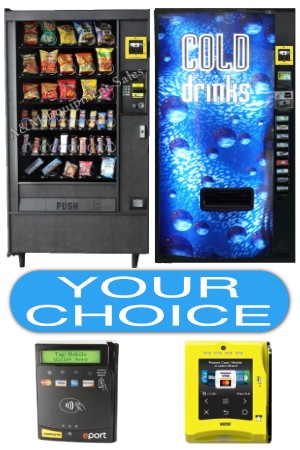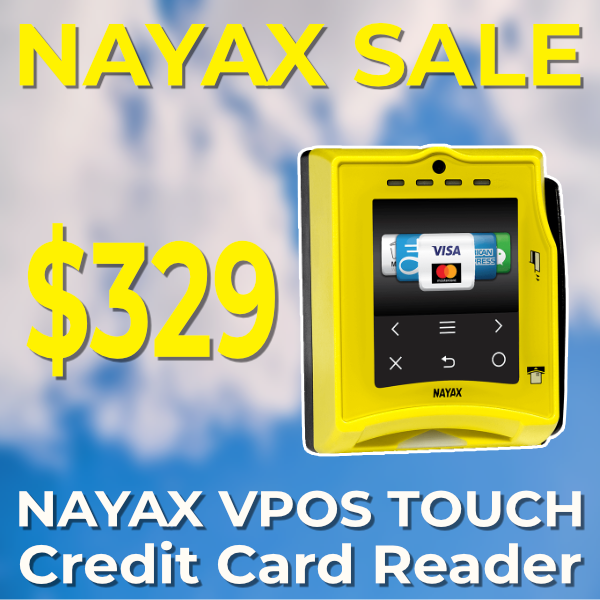When it comes to purchasing vending machines, the allure of cheap prices from foreign manufacturers can be tempting. However, one crucial factor often overlooked is whether these machines are UL-certified. This certification plays a significant role in ensuring the safety and reliability of electrical equipment. Neglecting it can lead to costly consequences for vending machine owners.
Understanding UL Certification and Its Importance
UL certification stands as a beacon of safety in the electrical equipment arena, a testament to the rigorous testing and standards set forth by Underwriters Laboratories, a globally recognized safety science company. This certification is not merely a label; it represents a comprehensive assurance that a product, in this case, a vending machine, has met stringent safety criteria designed to protect users and properties alike from potential electrical hazards.
The importance of UL certification in the vending machine industry cannot be overstressed. Electrical equipment, by its nature, carries inherent risks—risks that are magnified when the equipment fails to adhere to established safety standards. Vending machines are no exception. They are complex systems that combine mechanical components with electrical circuits to perform their functions. This complexity requires a meticulous evaluation to ensure that every part of the machine is designed and constructed to minimize the risk of electrical malfunctions, which can lead to fires or other safety incidents.
In the landscape of global manufacturing, where the quest for cost-cutting measures often leads to compromised safety standards, UL certification serves as a critical differentiator. It assures vending machine owners and operators that the equipment they are investing in has been subjected to and passed comprehensive evaluations concerning its safety and operational integrity. This certification process involves not just a single evaluation but an ongoing series of assessments that guarantee the product continues to meet the required safety standards over time.
In essence, UL certification embodies the commitment to safety and reliability. It is a pivotal consideration for anyone in the vending industry, signaling that a vending machine has been meticulously tested and verified to operate safely within public and private spaces. It reassures owners, operators, and the public that these machines provide not just convenience but also assurance of their safety and well-being.
The Hidden Costs of Non-UL Certified Vending Machines

Embarking on the venture of procuring vending machines at lower costs might present itself as a financially savvy decision in the immediate term. However, the allure of affordability masks the lurking dangers and potential financial pitfalls associated with non-UL-certified vending machines. Beyond the surface-level savings lies a complex web of hidden costs that could unravel to reveal a financially draining scenario for owners.
The crux of the matter pivots around the reliability and safety of these machines. Non-UL-certified vending machines, while cheaper, have not undergone the rigorous scrutiny for electrical safety standards that UL certification demands. This lack of certification is not merely a missing tick box but a significant gamble on the operational integrity of the equipment. In the unfortunate event of an electrical failure, the consequences could escalate beyond mere operational downtimes.
Electrical malfunctions in these machines are not just hazards to the immediate vicinity but can also ignite fires, causing extensive property damage and potentially endangering lives. Such incidents carry with them not only the immediate costs of repair and replacement but also the looming specter of liability for damages incurred. This liability extends into the realms of legal fees and settlements, costs that can swiftly dwarf the initial investment saved by opting for a non-UL-certified machine.
Moreover, the financial ramifications are compounded when insurance considerations are brought into the fold. The stark reality is that many insurance policies stipulate the use of UL-certified equipment as a precondition for coverage. In the absence of such certification, vending machine owners may find themselves navigating the aftermath of an incident without the safety net of insurance coverage, shouldering the financial burden independently.
The essence of this dilemma underscores the importance of looking beyond the initial price tag. The true cost of opting for non-UL-certified vending machines encompasses not only potential financial liabilities but also the integrity of ensuring a safe environment for users and bystanders.
Insurance Implications for Non-UL Certified Machines

Venturing into the world of vending machines without the shield of UL certification introduces a precarious financial landscape, one where insurance coverage becomes a critical concern. The absence of this certification is a glaring red flag for insurance providers, a marker that often precludes the possibility of comprehensive coverage. This gap in protection means that in the event of an electrical malfunction or a fire, the burden of financial recovery falls squarely on the shoulders of the vending machine owner.
Navigating the aftermath of such incidents without the support of insurance is not just a daunting challenge; it’s a journey through potentially ruinous financial straits. Insurance policies, designed to mitigate risks and provide a safety net, typically include clauses that necessitate compliance with safety standards, including UL certification. The rationale is straightforward: adherence to these standards significantly reduces the risk of catastrophic failures.
The implication here is twofold. First, it underscores the integral role of UL certification in aligning with the risk management strategies of insurance companies. Without it, vending machine owners may find themselves ineligible for coverage that is essential in safeguarding against unforeseen disasters. Second, it serves as a stark reminder that the perceived savings from purchasing non-UL-certified machines are illusory. The initial cost benefits are quickly overshadowed by the potential for uninsured losses, which can escalate rapidly in the wake of an incident.
In essence, the absence of UL certification in vending machines not only elevates the risk of electrical hazards but also introduces significant insurance challenges. This complex interplay between safety certification and insurance coverage is a critical consideration for vending machine owners, highlighting the paramount importance of prioritizing UL-certified equipment in their procurement decisions.
Real-World Consequences of Ignoring UL Certification
The ramifications of opting for vending machines devoid of UL certification are not merely hypothetical. The landscape is dotted with cautionary tales that illustrate the stark realities of skirting around established safety standards. These narratives are not simply about the failure of machines but about the broader impact on human safety and financial stability.
Consider the case where a non-UL-certified vending machine was implicated in a fire within a commercial establishment. The aftermath was not just about the loss of the machine itself but the extensive damage to the property and the prolonged disruption of business operations. This incident spiraled into a complex legal battle, as the lack of certification became a pivotal point in the liability argument, exposing the vendor to significant financial and reputational damage.
Similarly, another incident involved a non-certified machine causing an electrical short circuit, leading to injury. Beyond the immediate medical concerns, this situation raised serious questions about the due diligence in machine selection and the overarching responsibility of vendors to ensure the safety of their equipment.
These real-life incidents underscore a critical lesson: the decision to bypass UL certification is fraught with risks that extend far beyond the immediate cost-saving allure. The tangible consequences of such decisions manifest in various forms, from property damage and personal injury to the ensuing legal and financial repercussions. These are not risks that can be easily dismissed or underestimated. They paint a vivid picture of the potential fallout from neglecting the crucial aspect of safety certification, reinforcing the argument for prioritizing UL-certified vending machines in all procurement decisions.
Making the Smart Choice: Selecting UL-Certified Vending Machines

Navigating the vending machine marketplace requires a discerning eye, particularly when it comes to ensuring the safety and longevity of your investment. The decision to opt for UL-certified vending machines is a testament to a commitment towards not only safeguarding assets but also prioritizing the well-being of customers and bystanders. The initial investment in machines bearing the UL mark may appear as a premium; however, this upfront cost pales in comparison to the extensive benefits and protections it affords.
Choosing equipment that has undergone the rigors of UL’s comprehensive testing means embracing a culture of safety and reliability. These machines stand as a bulwark against the unforeseen expenses and legal complications tied to electrical malfunctions and safety hazards, often hidden beneath the surface of cheaper, non-certified alternatives. It’s a strategic move that aligns with a long-term vision, ensuring that operations are not only efficient but also insulated against potential financial liabilities and operational disruptions.
Moreover, selecting UL-certified machines strengthens your stance in the eyes of insurance providers, offering a smoother pathway to obtaining favorable coverage terms. This alignment with insurance requirements further solidifies the financial prudence of this choice, acting as a preventive measure against the sting of out-of-pocket expenses following incidents that could have been mitigated by adhering to recognized safety standards.
In essence, the journey towards a safe and prosperous vending operation is markedly enhanced by the decision to invest in UL-certified vending machines. This choice reflects a broader commitment to excellence, safety, and financial wisdom, charting a course toward sustained success and resilience in the face of challenges.
All A&M Equipment Sales Vending Machines are UL-certified
At A&M Equipment Sales, we prioritize your safety, financial security, and peace of mind above all. Understanding the critical importance of UL certification in vending machines, we have taken a firm stance: every new and used vending machine we offer carries this esteemed mark of safety. This commitment ensures that when you choose to partner with us, you are not merely investing in a vending machine; you are investing in a future, free from the avoidable risks associated with non-UL-certified equipment.
Our selection process is stringent, reflecting our dedication to offering only those machines that meet the highest standards of electrical safety and operational integrity. By aligning our offerings with UL’s rigorous safety standards, we provide you with an inventory you can trust—reducing the risk of liability and ensuring compatibility with insurance requirements. With A&M Equipment Sales, selecting a vending machine becomes a straightforward decision, one that safeguards your operation against unseen costs and supports your long-term success in the vending industry. Contact us today.




